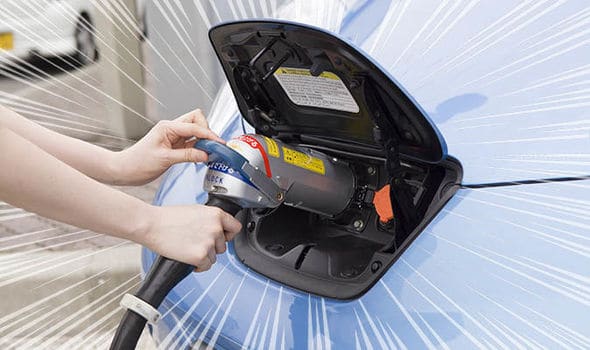
Electric cars could soon be charged up in as much time as it takes to put fuel in a petrol car after scientists develop a new energy storage system.
A group of chemists from the University of Glasgow has developed a new ‘flow battery’ system which utilises nano-molecules to be able to store either electric power or hydrogen gas.
It will be based on the design of a nanoscale battery molecule and it will be able to release power on demand as either electric or hydrogen to power a car.
This breakthrough could see electric cars recharged in seconds and be flexible in situations that may require hydrogen fuel or electric power.
Nano-molecules could be contained in a pumpable liquid and could see the new liquid replace the old in seconds.
According to the report published in the journal Nature Chemistry, when a concentrated liquid contains nano-molecules, the amount of energy it can store increases by almost 10 times.
The method was designed by Professor Leroy Cronin, Dr Mark Symes, and Dr Jia Jia Chen and they believe that is could pave the way for electric cars in the future.
“For future renewables to be effective, high capacity and flexible energy storage systems are needed to smooth out the peaks and troughs in supply,” said Professor Leroy Cronin, the University of Glasgow’s Regius Chair of Chemistry.
“Our approach will provide a new route to do this electrochemically and could even have application in electric cars where batteries can still take hours to recharge and have limited capacity.
“Moreover, the very high energy density of our material could increase the range of electric cars, and also increase the resilience of energy storage systems to keep the lights on at times of peak demand.”
In July, the Government announced a massive improvement in electric charging infrastructure over the next few years.
The new law aims to improve infrastructure and confidence in electric vehicles to make sure all public charge points are compatible with all cars.
